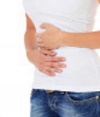- Call for a FREE Consultation
410-984-3700 - Sign up to receive news and updates and get my free report:“The Top 10 Reasons to Try Acupuncture”

- Unsubscribe at any time.

-
 Jean Donati Acupuncture604 E. Joppa RD
Jean Donati Acupuncture604 E. Joppa RD
Towson, MD 21286410-984-3700 -
Latest Articles:
- • Enjoying Summer’s Bounty •
- • Your Summer Garden Checklist •
- • A Guide to Summer Self-Care •
Digestive Disorders
Acupuncture for Treating Leaky Gut Syndrome

There are a variety of gastrointestinal and autoimmune diseases that can contribute to what is known as leaky gut syndrome. So, what exactly is leaky gut syndrome? It’s close to exactly what it sounds like. Each one of us has semi-permeable guts. What that means is the mucous lining of our intestines is designed to absorb water and nutrients from our food. Your intestinal lining is responsible for acting as a barrier to bacteria. With leaky gut syndrome, your intestinal lining “leaks” allowing more water and nutrients through, but also potentially allowing toxic molecules to come through as well. continue reading
Happy Winter Solstice–Water Element

We are now in the midst of Winter. The season is cold, dark, and quiet. Winter is for us, as for all of nature, a time on internal work: meditation, containment, concentration, and storing our energy. We use this season for rest, and for the replenishing of our reserves, gathering strength for the year ahead. Like the seed that cannot sprout until it has gathered sufficient strength, our ideas and plans cannot manifest if our energy is dispersed or drained.
In Chinese medicine, the element associated with Winter is Water. Let us talk a little about water and its associations. Water can take on many different qualities in nature. It can take the form of a stagnant pond, or powerful rapids. It can be a smooth flowing stream, or water raging out of control. The water element can show up like this in all of us. When our water energy is balanced, we are a calm lake or stream. Our energy is moving, neither stagnant or overflowing. When we are out of balance, we may become a flooding river, or when immobilized with fear, a frozen creek.
The organs associated with winter are the kidney and bladder. In Chinese medicine, when we talk about organs, we are talking about the energetic aspects of the organ in an individual, not about Western anatomy and physiology. The kidney, in Chinese medicine, are the root of the life force energy or Qi. The kidneys create the fire and warmth to sustain bodily functions and to provide energy to the other organs. The bladder controls the expenditure of energy. You can look at the kidney as being the the bank account, and the bladder as the ATM machine. The acupuncture points along these pathways of energy can be used to fill the reserves and awaken that place within us where our real strength, courage and wisdom lie.
Abundant reserves within us give us the courage and strength of will. When we lack these reserves, we may feel fearful. In Chinese medicine, the emotion of fear is associated with the element of water and the season of winter. The emotion of a distressed water element is fear of not having enough of what it takes to meet the challenges that lie ahead, fear of being unable to complete what we have envisioned, or fear of not being prepared for what we might have to face. It is as if we do not have enough stored away to survive the winter.
How does an imbalanced water element show up in an individual? In Chinese medicine, the individual is viewed on levels of the body, mind, and spirit. Dis-ease often manifests on more than one level. On a physical level, one may feel fatigued, lacking energy (the energetic bank account or ATM depleted). Water also lubricates the body. We are, after all, 85% water! With lack of lubrication comes stiffness. Do your bones or joints hurt more in winter? Are you more anxious? Thoughts, ideas, muscles and joints move easier when they are lubricated.
In terms of the mind and spirit, do you feel like you want to do things but you simply cannot? That you seem to be stuck on the sofa with your mind saying “I should do this, or I should do that”, but you simply cannot get up enough energy to get it going? Or maybe you seem to be going all the time—frantically moving from one thing to another –always running about but never truly getting much accomplished.
Within the energy of water lies our will, our ability to keep on keeping on. So what can you do? My number one advice is to remember to take time to relax completely for at least 30 minutes during the day. This means to kick back, listen to music perhaps, but definitely relax your body and mind.
Acupuncture is not just for pain. It addresses the underlying condition and is used to balance the whole person. You cannot separate the body and the mind—balance one and you balance the other. Emotional blocks can be moved and physical symptoms can be cleared as a person is brought back into healthy balance. Just some of the areas that acupuncture addresses; the digestive, reproductive, immune and respiratory symptoms, anxiety, depression, that annoying “stuck” feeling and, of course, physical discomfort.
To maintain the fire of the kidney, a winter diet ideally would be warming and substantial with more whole grains, less fruit, and lots of steamed or baked vegetables, especially root vegetables. Soup is a great addition to the diet during winter as it is easy on the digestive system and keeps our inner fire warm. Warming herbs and spices like ginger, chili peppers and cinnamon are wonderful additions to your diet this time of year.
Exercise such as Tai Chi and Qi Gong are very good for inner balance, as they build strength, improve immune function and cultivate Qi (energy) through breathing, meditation and slow movements. If you have lower back pain, you may find that rest, warm foods, and activities that support that support your inner balance may supplement your water energy and diminish your symptoms. Remember, the kidneys and bladder are governed by water. Give them all the help you can by drinking more water.
Finally, if you receive acupuncture, winter is a great time for a tune up. If you do not receive acupuncture, winter is a great time to start building your reserves.
Digestive Disorders and Acupuncture
|
|||||||
|
|||||||
|
|||||||
Easing Transitions with the Earth Element

Easing Transitions with the Earth Element
We all are very familiar with Spring, Summer, Fall and Winter but why does Chinese Medicine include a fifth season and where does it fit on the calendar?
According to TCM theory, the fifth season is actually that important time between the seasons, where we ‘return to center’ so we can ‘pivot’. About 2-3 weeks before the beginning of each season is a time of transition.
Each season correlates with an elemental energy. Spring belongs to the wood element, Summer to fire, Fall to metal and Winter to water. The transitional time between the seasons rightfully belongs to the earth element as this is the time when the seasonally dominant energy returns to the earth to be transformed into the next seasonal energy.
The Earth Element is generated and managed in the body by the spleen and stomach. These organs are in the business of metamorphosis. As digestive organs (according to TCM), they transport and transform the food we eat into nutrition to build our blood and nourish our cells. The spleen governs the muscles, and is important in the free movement of the body. The associated orifice is the mouth and spleen Qi manifests in the lips. The Spleen is also known for housing the intellect (yi) and is involved with the thinking aspect of spirit. The color of the earth element is yellow, and the taste is sweet.
The Chinese Lunar Calendar sets the start of the seasons earlier than our Gregorian calendar, so if we are following the seasons according to Chinese Medicine We are currently in Late Summer, and this is the time to pay special attention to the energy of transition.
The benefit of nourishing our earth element during this time is to gain balance and stability for periods of change. The earth element represents our wide center stance from which we can safely assess the next move (picture the slow smooth movements of tai chi). The importance of core stability rings true whether we are talking about physical activity or more subtle energy dynamics.
1) Diet:
Avoid damp cold food such as ice cream as it can put a burden on the spleen that prefers warm, dry conditions. Eat breakfast between 7-9am which is stomach time according to the Qi clock. From 9-11am is spleen time. Some gentle activity is ok but as the spleen converts food to Qi, try to take it easy so you do not disrupt digestion. Avoid processed sugar while enjoying the natural balance of sweetness from the earth with foods like apples, carrots, dates, and sweet potatoes.
2) Release Worry-Patterns:
The spleen houses the intellect and is responsible for thought but can be weighed down by overthinking. This will slow its ability to transform our food. We can all think of times when worry led to unpleasant digestive experiences.
So, find ways to shift patterns of over-thinking and worry.
(Cue the serenity prayer…)
3) Yellow:
Stimulate earth energy with its color and brighten up someone’s day by wearing more yellow. Notice the yellow colors in nature, stop and absorb their frequency. And eat yellow foods: bananas, yellow peppers, lemons etc.
4) Earthing:
You know what to do. Connect direct! Get those bare feet on the ground (pesticide-free please).
Now get some Vitamin-E on those earthy lips and pucker up: you’ll be ready to give Fall a sweet kiss hello.









